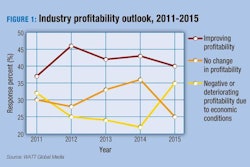Animal producers are working to deliver more protein to feed a growing population, while also using fewer resources. To help customers in China leverage and apply the best possible feed technologies to help them grow their businesses and wisely use resources, Cargill has established a new Technology Application Center (TAC) in Bazhou, Hebei, China.
“The Cargill Animal Nutrition R&D and applications teams work every day to bring our customers the best solutions for making their businesses as successful as possible,” said Scott Ainslie, global strategic marketing and technology director for Cargill’s animal nutrition business. “Our TACs are designed to evaluate and test the application of Cargill technology under local conditions. This TAC allows us to more quickly deliver new products and services that are customized to meet the specific requirements of our customers in China.”
The new Hebei TAC operates with 120 lactating dairy cows and 280 sows and focuses on technology applications to improve animal performance, lower diet costs, reduce nitrogen and phosphorus excretion, and enhance animal health.
The RMB 38 million Hebei TAC is the latest of Cargill’s 14 animal nutrition research and technology centers globally that are working around the clock to explore, innovate and think ahead of the challenges customers face in navigating today’s complex and ever-changing environment.
“By leveraging our two global R&D Innovation Centers and learnings from our other 11 TACs to design and execute feed nutrition solutions based on local requirements and customer goals, the new Hebei TAC allows our Chinese customers to tap into best possible solutions from around the world,” added Jason Shelton, global technology application director for Cargill’s animal nutrition business.
For instance, the Hebei team recently tapped into Cargill’s proprietary global nutrient formulating platform, Cargill Nutrition System (CNS), to discover a proven solution for formulating low-protein diets for pigs that improve animal performance and yet reduce nitrogen and phosphorus excretion during production. The solution has had success in Europe and the United States and will be tested and optimized for Chinese customers at the Hebei TAC.

















